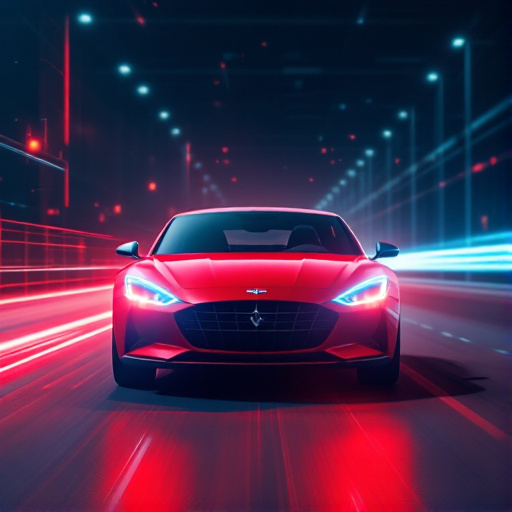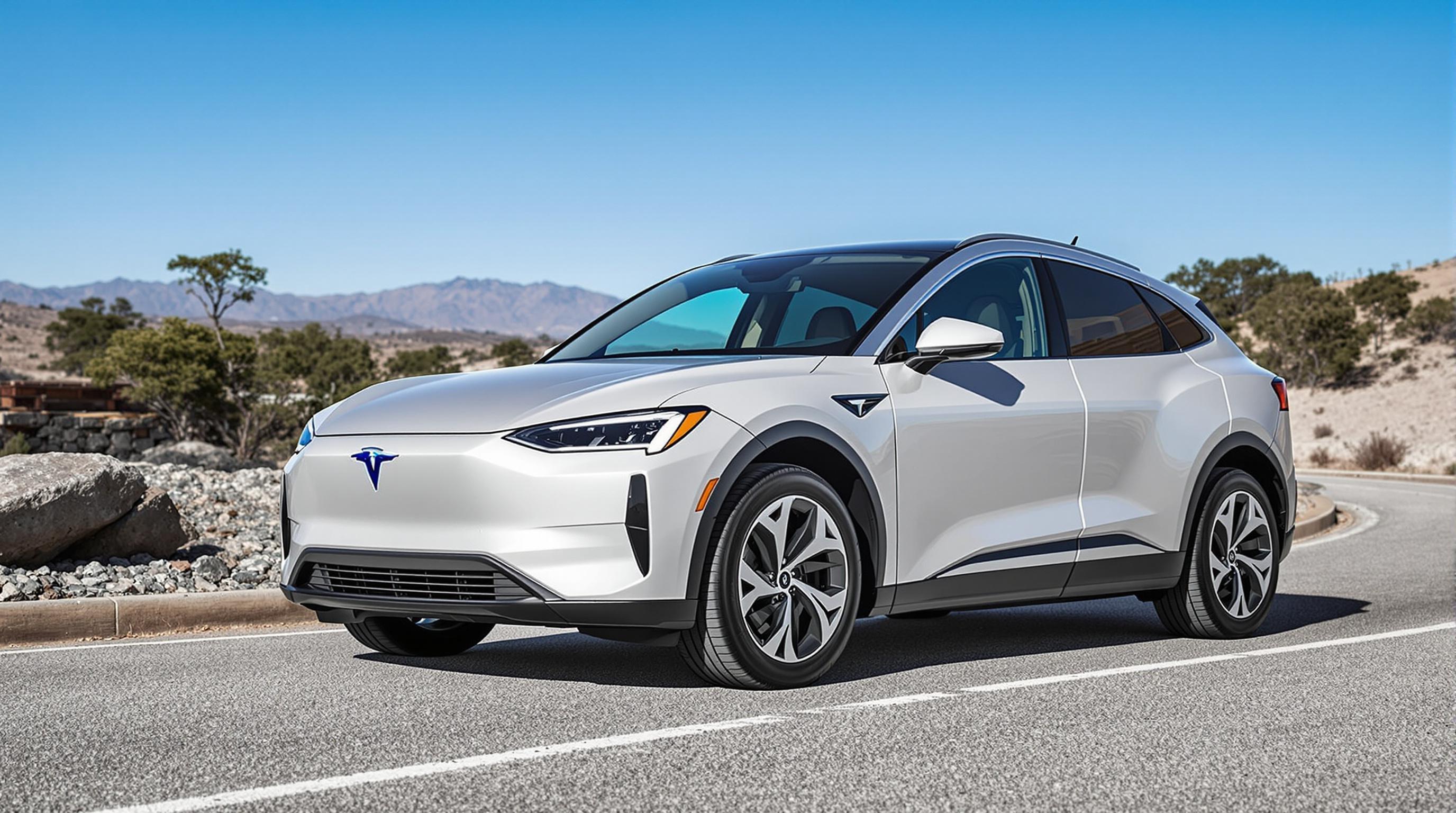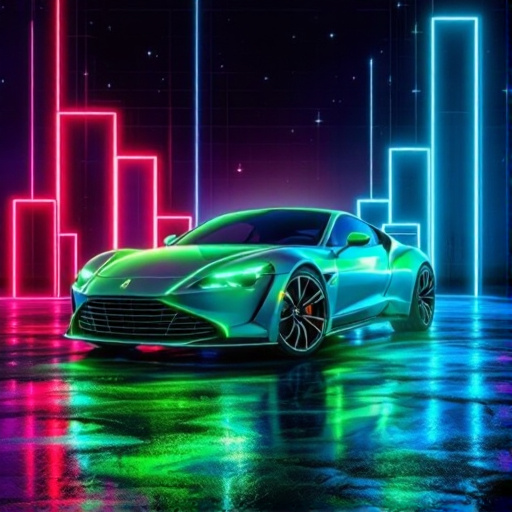Related Articles
- Unveiling the Unthinkable: How Your Social Media Posts Could Impact Your Car Insurance Premiums
- "From Showroom to Social Media: How Dealerships are Becoming Digital Storytellers in 2023"
- "From Showroom to Stream: The Rise of Virtual Reality Test Drives at Dealerships"
- Revving Up Sales: How Virtual Reality is Transforming the Dealership Experience for Shoppers and Sellers Alike
- Selling Experiences: How Dealerships Can Transform into Immersive Automotive Entertainment Hubs
- The Surprising Impact of Your Credit Card Habits on Car Financing: What You Didn't Know!
Unlocking the Secrets: How Ghostwriter Insights Shape the Future of Car Buying Guides
Unlocking the Secrets: How Ghostwriter Insights Shape the Future of Car Buying Guides
Ghostwriters hold a unique power in shaping the content that drives car buying guides, delving deep into the needs and preferences of consumers. Their insights unlock secrets of market trends, resulting in content that is not just informative, but transformative for prospective car buyers.
The Unseen Force Behind Your Favorite Guides
Picture this: it’s Saturday morning,and you’re curled up on the couch, coffee in one hand, your smartphone in the other. You scroll through what seems like a million articles on which car to buy next. Who do you think is behind those polished words? Enter the ghostwriter—a behind-the-scenes wizard whose insights shape the very guides that lead you to your next vehicle purchase.
Understanding the Consumer's Mind
One of the biggest challenges in car buying is understanding individual needs. A study from Deloitte found that 75% of car buyers feel overwhelmed by the sheer volume of information available to them (Deloitte, 2022). Ghostwriters tap into consumer psychology to craft content that resonates, prioritizing clarity and empathy. It's not just about saying 'this car has good mileage'—it’s about understanding why that matters to someone who drives 60 miles to work daily.
Lorem Ipsum? No, about Real Things!
If we examine the humor side of writing, those of us old enough to remember using placeholders like ‘Lorem Ipsum’ may chuckle. But ghostwriting is more than just filling up space; it's about providing real value with content. What might start as an awkward brainstorming session can evolve into deeply researched, consumer-centric guides that address everything from financing to sustainability.
Case Study: The Toyota Prius
Consider the rise in popularity of hybrid vehicles, largely driven by consumer demand for sustainability. A ghostwriter, working closely with automotive experts and market analysts, produced a guide stating how much buyers could save on fuel with a Toyota Prius. This article not only detailed the car's specs but also included stories of real customers who reduced their carbon footprint while saving money. The combination of storytelling and detailed information created a resource that readers found invaluable.
Mediums Matter: The Rise of the Digital Age
In the age of AI and automation, the value of the human touch cannot be overstated. Ghostwriters craft content designed for various platforms—websites, social media, and print publications alike. This adaptability means car buying guides are no longer static; they are constantly evolving. For example, implementing SEO strategies ensures that the guide reaches its target audience effectively. According to HubSpot, 75% of users never scroll past the first page of search results, making optimized guides crucial (HubSpot, 2023).
Breaking Down Barriers
Ghostwriters are also pivotal in bridging gaps between the automotive industry and diverse consumer demographics. For instance, younger audiences often prefer concise, engaging video formats over lengthy texts. In contrast, older consumers typically appreciate in-depth analyses. A good ghostwriter can adjust the tone and structure of content to cater to these distinct preferences consistently.
The Power of Storytelling
Let’s face it, who doesn't enjoy a good story? Ghostwriters understand that narrative builds connection. For example, imagine a guide that starts with a young couple excitedly purchasing their first car, venturing into the exciting yet daunting world of finances and decisions. They navigated the process step by step, culminating with their perfect choice and lessons learned along the way. This engaging approach not only entertains but retains reader interest, providing them with valuable insights.
Humor and Lightness in Heavy Decision-Making
Buying a car can sometimes feel like a part-time job. Ghostwriters often infuse humor into these guides to lighten the mood and make the process seem less daunting. A witty line about your next car being your greatest “relationship” that’ll never drive you crazy could easily pave the way for a reader to feel more at ease. It's not only relatable; it humanizes what can often be a stressful decision.
Data-Driven Decisions
When crafting car buying guides, data may sound dry, but statistics can tell compelling stories. For instance, shared insights indicate that nearly 54% of buyers prefer to do extensive research before making a purchase (Nielsen, 2023). A ghostwriter can effectively transform these numbers into narratives that highlight why certain models stand out in crowded markets. By doing so, they help consumers navigate through data and make informed decisions based on their preferences.
Creativity Can Be Key
One of the most exciting aspects of ghostwriting is its ability to foster creativity while balancing information and entertainment. A ghostwriter might think outside the box to create quizzes or checklists as part of a guide, enabling readers to determine their ideal vehicle based on personal preferences. By making content interactive, they engage users more effectively than with plain text alone.
Building Trust and Credibility
Rebuilding trust between consumers and the automotive industry is another cornerstone of ghostwriter contributions. By anticipating concerns and answering common questions upfront, they can craft a guide that speaks directly to consumer fears, ultimately establishing credibility with the target audience. A prompt addressing high vehicle prices, for example, can provide insights into financing options, exercising transparency, and reassuring potential buyers that there are paths available to them.
Conversations Over Conventions
While traditional car buying advice often feels outdated, a new wave led by actionable ghostwriter insights promotes a conversational tone. This modern approach resonates more with diverse age groups, bridging gaps between generations. For instance, younger buyers appreciate text messages at every stage of the buying process, while older generations may prefer email updates. Ghostwriters aim to find that balance, respecting the wisdom of experience while embracing modern expectations.
The Future is Bright with Ghostwriting
As car-buying models evolve with technological advancements from electric vehicles to subscription services, ghostwriters are at the forefront, shaping guides that keep pace with these changes. With an increasing focus on sustainability and ethical consumerism, insights from ghostwriters will shape future content, addressing these trends before they become apparent to the broader market. In the world of data and changing analytics, their ability to connect and tell stories will remain invaluable.
Joining the Discussion
One final thought—careers in car journalism are opening up like never before, inviting fresh perspectives from a diverse array of writers. Many consider joining discussions on social media platforms, sharing their thoughts and experiences within the car-buying realm. Ghostwriters frequently curate these dialogues, mining them for insights that reshape future content. Your next favorite guide may just be a tweet away!
Conclusion: The Transformational Power of Ghostwriters
Ultimately, ghostwriters hold the key to unlocking the secrets behind car buying guides, enhancing both the consumer’s experience and the industry’s approach to content creation. With their unique ability to blend creativity, data, and empathy, they will continue to shape the future of automotive writing, making the car buying process not just informative, but enjoyable, accessible, and personal.




